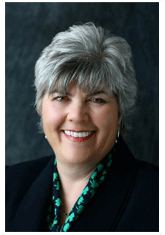JEFFERSON CITY—By a vote of 30-0, the Missouri Senate, today (3-12), passed legislation establishing a statewide Health Care Directives Registry. Senate Bill 122, sponsored by Sen. Gina Walsh, D-Bellefontaine Neighbors, would establish a health care directives registry for the purpose of providing a place to securely store an advance health care directive electronically and to give authorized health care providers immediate access to them when a patient is admitted to a hospital.
Advance directives, which are legally valid throughout the United States, identify a representative to speak for you and make decisions for you if you would become unable to as a result of an accident or illness.
“I can’t stress enough the importance of advance directives. Without them, decisions about your medical treatment or end-of-life care may be left up to people who don’t know you or your wishes,” said Sen. Walsh. “Advance directives give you a voice in your health care decisions, even if you are unconscious or too ill to communicate.”
The registry would allow Missouri residents to store their Advance Health Care Directive so that medical providers, family members and anyone else they grant access will honor their wishes. Senate Bill 122 unanimously (10-0) passed out of the Senate Veterans' Affairs and Health Committee.
The database of advance directives is a confidential and secure site, protected by the most up-to-date web and database security standards. All submitted information will be used only by authorized individuals and will be kept completely confidential. Your information could not be shared or sold and would be exempt from the Sunshine law in order to protect your medical privacy.
The submission process is secure and simple. During an individual’s visit with their health care provider or attorney, who offers access to the electronic registry, the individual or his or her legal representative, may complete the electronic form and electronically sign the document—very similar to how a person opens a bank account today.
States like Virginia have successfully contracted out this type of electronic registry, and several health technology information companies already exist around the country and compete to offer the best and lowest bid for this service, saving the taxpayers money.
“We each have the right to make our own health care decisions,” Sen. Walsh said. “Senate Bill 122 simply provides people with an easy and confidential option for ensuring that their end-of-life and other critical health care decisions will be honored.”
The first legislation authorizing a registry was enacted in Louisiana in 1990. As of mid-2009, 11 other states have enacted legislation mandating the creation of a registry for health care directives.
For more information on SB 122, or any of Sen. Walsh’s other legislation, visit her Missouri Senate website at www.senate.mo.gov/walsh. |



